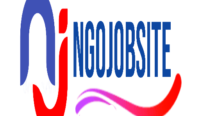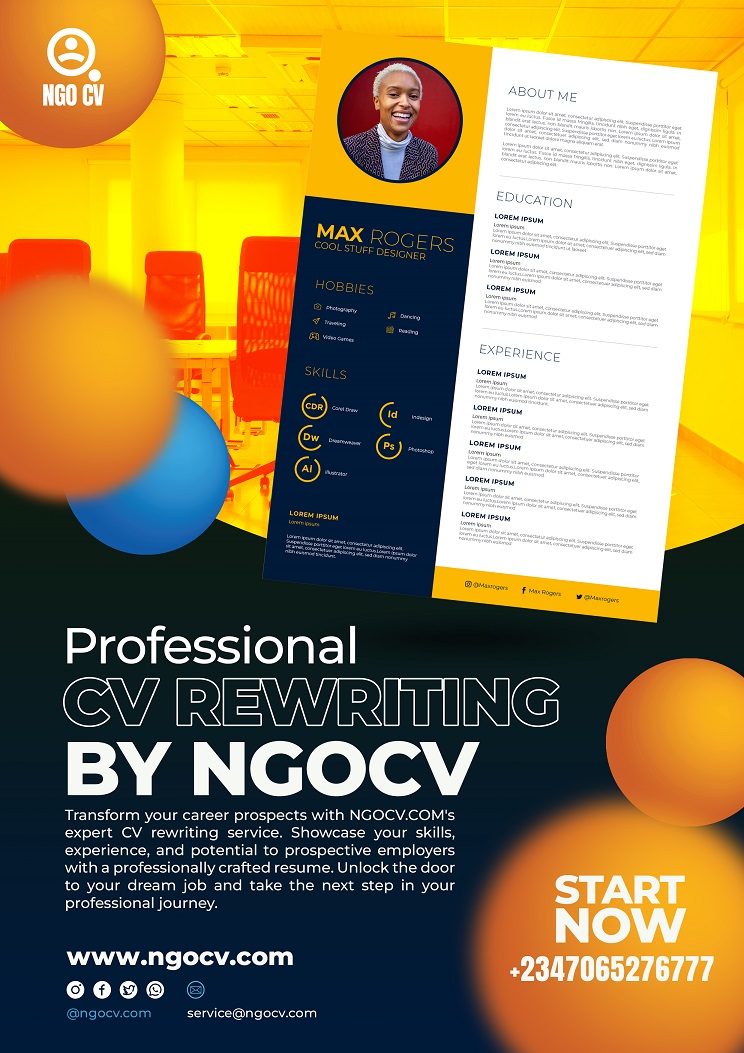Background on Save the Children
Save the Children is the leading global independent organisation for children. Save the Children believes every child deserves a future. Around the world, we work every day to give children a healthy start in life, the opportunity to learn and protection from harm. When crisis strikes and children are most vulnerable, we are always among the first to respond and the last to leave. We ensure children’s unique needs are met and their voices are heard. We deliver lasting results for millions of children, including those hardest to reach.
We do whatever it takes for children – every day and in times of crisis – transforming their lives and the future we share.
Our vision: A world in which every child attains the right to survival, protection, development and participation.
Our mission: To inspire breakthroughs in the way the world treats children, and to achieve immediate and lasting change in their lives.
Our values: Accountability, ambition, collaboration, creativity and integrity.
We are committed to ensuring our resources are used as efficiently as possible, in order to focus them on achieving maximum impact for children.
Background information/context
The Boko Haram insurgency in Northeast Nigeria has led to huge displacements of people, disrupted livelihoods, and depleted HH purchasing power hence putting at risk the food security of millions of people. Across the three North-east Nigeria BAY (Borno, Adamawa and Yobe) states, there are an estimated 2,144,135 people[1] (441,361 HHs) internally displaced; the majority (1,595,817) in Borno State made up primarily of vulnerable women and children in urban and peri-urban LGAs of MMC, Jere and Konduga. In a recent assessment, IDPs indicated their biggest unmet need is food, followed by NFIs (12%) and shelter (5%).[2] The 2021 HRP estimates that 8.7M people are in need of humanitarian assistance across the BAY states.
Attacks on farmers working fields in the outskirts of Maiduguri continue to limit options for HHs to return or adapt livelihood practices. The Cadre Harmonisé (CH) analysis from October 2020 an estimated 1,814,253 people in Borno are currently in IPC Phase 3 or worse food insecurity and projected to increase to 2,673,293 during the lean season, with almost 700,000 facing emergency food insecurity. Economic impacts from COVID-19 restrictions have also limited recovery by HHs currently receiving food assistance with price increases and increased sharing expectations diluting previously seen improvements. IDP livelihoods (including norms) have been disrupted, assets depleted with little or no income sources making them reliant on humanitarian assistance for survival. This has resulted in increased acute malnutrition in Borno in 2020 (with GAM rates of 10.7% compared to 2019’s GAM rates of 6.9%). This is compounded by poor access to health services, water and sub-optimal infant and young child feeding (IYCF) practices, all as a result of more than a decade of conflict. According to the 2021 draft Humanitarian Response Plan (HRP), 1.3M children and women require immediate nutrition services in the BAY states. While in Borno, the exclusive breastfeeding <6 months prevalence improved from 45.6% in 2019 to 64.3% in 2020, other nutrition indicators remained below the global standard, with minimum dietary diversity in children 6-23 months at 26.4%, only 15.3% of the children reported to have received a minimum acceptable diet and continued breastfeeding up to 2 years at just 30.8%. Among the factors that limit caregivers from providing children with an adequate and diverse diet are limited income to buy food from the market and minimal home production due to limited land within IDP settlements. Humanitarian assistance only provides 70% of food needs and HHs prioritize bulk staples for quantity over quality in their diet.
The continued stay in IDP settlements has resulted in protection challenges for vulnerable populations including women and girls under threat of violence, abduction and rape. Gender-based violence (GBV) including sexual violence as well as forced and child marriages continue to be reported and are attributed to the conflict, insecurity and poor living conditions in IDP camps and informal settlements. IDP settlements are congested with water and sanitation challenges while there is more pressure within host communities on existing water points, many of which have been destroyed during the conflict. HHs are unable to construct their own sanitation facilities resorting to open defecation, resulting in the continuous outbreaks of water-borne diseases. COVID-19 outbreak has further exposed the vulnerability of these HHs.
The new BHA funding aims to provide Integrated lifesaving assistance for conflict-affected households in Borno, Nigeria.
Objective
The purpose of this baseline study in the proposed implementation LGAs is to provide the WASH, Nutrition, child protection, food security and livelihood status of potential beneficiaries, upon which strategies of implementation will be based. This evaluation also aims to provide baseline data against which program outcomes of the newly integrated lifesaving assistance for conflict-affected households in Borno, Nigeria will be assessed at the end of project implementation. The specific objectives of the study are to:
· Generate data for a set of indicators outlined in project M&E plan;
· Use collected data as a benchmark for measuring project success or failure;
· Compare the status of the context with what was present prior to project implementation.
· Suggest priority areas for future programming.
Below are the specific outcome indicators to be measured per Sector: –
Food Assistance:
· Mean and median Reduced Coping Strategies Index (rCSI) score
· Percent of households with moderate and severe Household Hunger Scale (HHS) scores
· Percent of households with poor, borderline, and acceptable Food Consumption Score (FCS)
§ Mean
§ Confidence Interval
§ Median
§ Number (of households)
· Percent of households where women reported participating in decisions on the use of food assistance
Child Protection
· % of children reporting an improvement in their sense of safety and wellbeing at the close of the project (custom outcome)
· Percentage of Children reporting improvement in their psychosocial wellbeing (custom)
Nutrition
· Proportion of infants 0 – 5 months of age who are fed exclusively with breastmilk
· Percent of children 6–23 months of age who receive foods from 5 or more food groups (MDD)
WASH
· Percent of beneficiary households with soap and water at a handwashing station on-premises
Location and official travel involved
The Supplier will work full time in the SCI Borno field office location. Regular office hours are 9:00 am to 5:00 pm, Monday to Sunday. Office space will be provided but the consultant is responsible for bringing his/her own IT equipment. The Supplier may be required to travel to other locations. Any required travel will need pre-approval by SCI in accordance with SCI’s Travel Policy and applicable RO/CO Expense Policy.
· Percent of households targeted by the hygiene promotion activity who store their drinking water safely in clean containers
· Percent of people targeted by the hygiene promotion program who know at least three (3) of the five (5) critical times to WASH hands.
Services the Supplier will provide
The main deliverables for the baseline assessment are as follows:
· Inception report: setting out the design of the MEL strategy and associated planning, logistics, quality assurance, child protection measures, gender analysis and risk management information. The inception report should provide a detailed work plan incorporating all relevant tasks and milestones from start to finish of the evaluation.
· Assessment Report (draft): submission of a comprehensive assessment draft report for review and comments.
· Final Assessment report (final): Design, conduct and submit a final report that will serve as a baseline for the outcome of the project.
· Datasets: A fully ‘cleaned-up dataset used for the analysis in SPSS, Stata or any application should accompany the final baseline report.
· Report requirements: All reports should be submitted in electronic form and should be submitted in English. The assessment team will be asked to provide the inception and final report as an integral part of the submission process.
The evaluation report should indicatively be structured as follows:
· Executive summary
· Introduction
· Description of the project.
· Overview of the assessment approach, the baseline methodology and methods used, including limitations and challenges (detailed methodology to be provided in annexe)
· Findings
· Conclusions and recommendations
· Annexes
Ethical Considerations
It is expected that this assessment will be:
§ Child participatory. Where appropriate and safe, children should be supported to participate in the evaluation process beyond simply being respondents. Opportunities for collaborative participation could include involving children in determining success criteria against which the project could be evaluated, supporting children to collect some of the data required for the evaluation themselves, or involving children in the validation of findings. Any child participation, whether consultative, collaborative or child-led, must abide by the 9 basic requirements for meaningful and ethical child participation. Refer to the Practice Standards in Children’s Participation (International Save the Children Alliance 2005).**
§ Inclusive. Ensure that children from different ethnic, social and religious backgrounds have the chance to participate, as well as children with disabilities and children who may be excluded or discriminated against in their community.**
§ Ethical: The evaluation/research must be guided by the following ethical considerations:**
o Safeguarding – demonstrating the highest standards of behaviour towards children and adults.**
o Sensitive – to child rights, gender, inclusion and cultural contexts.**
o Openness – of information given, to the highest possible degree to all involved parties.**
o Confidentiality and data protection – measures will be put in place to protect the identity of all participants and any other information that may put them or others at risk. **
o Public access – to the results when there are no special considerations against this**
o Broad participation – the relevant parties should be involved where possible.**
o Reliability and independence – the evaluation/research should be conducted so that findings and conclusions are correct and trustworthy.**
It is expected that:
§ Data collection methods will be age and gender appropriate.**
§ Assessment activities will provide a safe, creative space where children feel that their thoughts and ideas are important. **
§ A risk assessment will be conducted that includes any risks related to children, young people’s, or adult’s participation. **
§ A referral mechanism will be in place in case any child safeguarding or protection issues arise.**
§ Informed consent will be used where possible.**
The consultant will not be required to obtain approval from a Human Research Ethics Committee. Save the Children will work with the relevant agency and provide assistance with this process.**
Experience and skill set required
The external consultant/team must have experience and significant knowledge of humanitarian response mechanisms, specifically regarding the Northeast humanitarian response, and have previous experience in conducting external evaluations for conflict responses. The evaluation team must be external to all stakeholders of the project. In addition, the following characteristics are highly desirable:
· Significant experience (5-8 years) in coordination, implementation, monitoring and evaluation of emergency response programmes AND expertise in at least one (1) relevant sector (Food Security & Livelihoods, Nutrition, Child Protection and WASH)
· Demonstrated experience of evaluating humanitarian response projects is essential (experience of evaluating USAID-funded projects is desirable)
· Knowledge and experience in child participatory approaches and child safeguarding
· Fluency in English and ability to write clear and concise reports (examples of previous work will be requested)
· Sound understanding of analysis that includes inclusion, cultural sensitivity and disability dimensions
· Knowledge of statistical modelling and analysis of data; highly proficient user of SPSS or STATA; and qualitative data analysis techniques, including the use of software such as ATLAS.ti, NVivo or equivalent.
· Understanding of USAID requirements as a humanitarian donor and specific requirements for this evaluation.
· Ability to manage the available time and resources and work to tight deadlines.
Application Requirement:
Interested parties/candidates should submit the following documents:
· Technical proposal describing how the requirements of the Terms of Reference will be met within the given timeframe.
· Budget
· CV(s) of lead evaluator/team
· At least 2 reports of similar assessments conducted by the consultant
All consultants are expected to submit the expression of interest online.
Proposals will be evaluated according to the following criteria:
· How well the requirements laid out in the ToR are met
· Skills and experience of the consultant
· Cost-effectiveness
*Technical Competencies:
Evaluation criteria
Only consultants that score ALL Yes under the essential criteria evaluation will progress to the capability evaluation stage.
The pass mark for the capability criteria is 75 points out of 100 points.
Experience and skill set required
Individual consultants who respond to the tender must meet the following criteria:
Technical Competencies:
Evaluation criteria
Only consultants that score ALL Yes under the essential criteria evaluation will progress to the capability evaluation stage.
The pass mark for the capability criteria is 75 points out of 100 points.
Experience and skill set required
Individual consultants who respond to the tender must meet the following criteria:
Essential Criteria
Yes/No
Agrees to comply with Save the Children standard policies and procedures as stated in the RFQ or Invitation to Tender (ITT) document
A ‘no’ in either of these boxes will result in immediate disqualification.
Successfully completed a bachelor’s degree in a relevant area, such as social sciences, development studies, or in specific technical areas such as education, public health, nutrition, food security, etc.
Provides a CV and cover letter, explaining relevant experience and relevant reports of previous work
Provides brief description and evidence (attached copies) of up to 4 relevant services provided to other actors (either INGOs, International Organisations or donors), including the year of service and an official email address to contact as a reference
Capability Criteria (technical)
Max. 100
Evidence of a minimum of three years experience designing and carrying out high-quality assessments, baseline, mid-terms and endline studies, and mid-term and final evaluations, for one or more of the following thematic areas:
· Child protection,
· Education,
· Health and Nutrition,
15 points
Evidence of experience working in development and/or humanitarian settings
5 points
Evidence shows strong training and experience in quantitative and qualitative data collection methods and analysis
10 points
Evidence of knowledge and experience with a range of statistical and qualitative data managing software and approaches (such as SPSS, EPI Info, Stata, NVivo, Atlasti, KOBO Toolbox, ODK or other similar software)
10 points
Evidence proves strong command of the English language, both written and verbal with strong report writing and documentation skills
10 points
Evidence of working experience in Nigeria or similar contexts
5 points
Provided brief description (200 words or less) of steps the consultant will take to ensure the quality of the services you would provide is of consistently high standards
[10 marks for providing a highly satisfactory response, 5 marks for a satisfactory response, and zero marks for not providing one or providing an unsatisfactory response]
10 points
Provided brief description (200 words or less) on experience in inclusive and ethical child participatory methods of data collection
[10 marks for providing a highly satisfactory response, 5 marks for a satisfactory response, and zero marks for not providing one or providing an unsatisfactory response]
10 points
During the interview, the consultant demonstrates in-depth knowledge of assessments, studies and evaluations, in terms of their design and implementation, which will be assessed and scored by a panel of experts
15 points
Expected Deliverables
SCI expects the following deliverables to be provided:
- Inception report
- Draft business case
- Final survey methodology (agreed following consultant selection)
- Powerpoint presentation on the preliminary findings
- A preliminary and final survey report.
Timeline
· The duration of the survey will be 30 days.
· Travel days (Including Security Debriefing): 2 days
· Inception of report writing: 2 days
· Development and review of the survey tool: 2 days
· Validation of methodology by Save the Children: 2 days
· Training Enumerators and pretesting tools: 5 days
· Data collection: 8 days
· Debriefing with Borno staff and other relevant stakeholders.: 2 days
· Data analysis and submission of first draft report.:4 days
· Presentation of the first draft report to SCI: 1 day
· Submission of the final report: 2 days
· Total: 30 days Maximum
Estimated Commencement Date: 1st August 2021
Estimated End Date: 30th August 2021.
Scope of work
Below are the areas that will be assessed: –
The baseline evaluation will be conducted in 57 communities in Jere, Konduga, MMC, and Mafa LGAs. Thirty-five communities are within MMC and Jere, 3 in Mafa and while 19 are Konduga LGA. The inhabitants of the target communities are majority Kanuri, Shuwa, and Hausa-speaking.
THE ORGANISATION
We employ approximately 25,000 people across the globe and work on the ground in over 100 countries to help children affected by crises, or those that need better health care, education and child protection. We also campaign and advocate at the highest levels to realize the right of children and to ensure their voices are heard.
We are working towards three breakthroughs in how the world treats children by 2030:
- No child dies from preventable causes before their 5th birthday
- All children learn from quality basic education and that,
- Violence against children is no longer tolerated
We know that great people make a great organization and that our employees play a crucial role in helping us achieve our ambitions for children. We value our people and offer a meaningful and rewarding career, along with a collaborative and inclusive workplace where ambition, creativity, and integrity are highly valued.
Save the Children is committed to ensuring that all our personnel and programmes are absolutely safe for children.
We undertake rigorous procedures to ensure that only people suitable to work with children are allowed to join our organization and all candidates will, therefore, be subject to this scrutiny.
We need to keep children safe so our selection process reflects our commitment to the protection of children from abuse.
Applicants are advised that Save the Children International does not require any payment or expense during the entire recruitment process. Any request in this direction should be immediately reported as it is contrary to the values and practices of our organization.
Due to the volume of applications received, Save the Children may not provide feedback to all applicants. Only shortlisted candidates will be contacted.
Qualified candidates are encouraged to apply as soon as possible, as applications will be reviewed as received. Save the Children reserves the right to change the closing date, if considered necessary.
How to apply
Interested candidate(s) should submit an expression of interest (technical proposal describing how the requirements of the Terms of Reference will be met within the given timeframe, budget, CV(s) of lead evaluator/team, 1-3 samples of relevant work) to [email protected]




